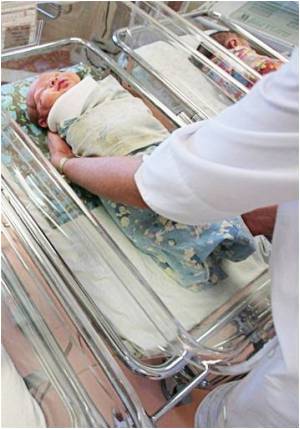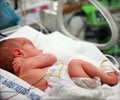A hospital in south China has suspended four medical workers for mistakenly diagnosing a stillbirth and disposing of a baby that was alive, state press said Friday.

Liu Dongmei -- eight months pregnant -- had been rushed to the hospital with internal bleeding and stomach cramps.
She later had an emergency birth, but the baby was neither breathing nor crying when it came out and its skin had turned purple, the report said.
Believing it was dead, the medical team disposed of the child but did not follow proper hospital procedures, it added.
When Liu’s sister-in-law asked to see the body around 30 minutes after birth, she was handed a yellow plastic bag containing the infant and found it was still alive, said the Foshan News, a local website.
"I opened the plastic bag and saw the baby’s hands and feet moving, the stomach was going up and down and air bubbles were coming out of his mouth," the paper quoted her as saying.
Advertisement
According to the Foshan News, nurses had told the family the child was a girl in an effort to blunt the blow of its death.
Advertisement
Following the discovery, the newborn was rushed to intensive care where he remains in stable condition.
Officials at the hospital and Foshan’s Nanhai health bureau refused to comment on the incident when contacted by AFP.
China’s healthcare system -- once widely praised for improving the health of millions -- is now panned as costly, underfunded and providing shoddy treatment, especially in poorer regions.
Liu and her husband are seeking to sue the hospital for 300,000 yuan ($45,000), the Beijing News said.
The head of the maternity ward, a doctor and two nurses have been suspended pending the results of the investigation, it added.
Source-AFP










